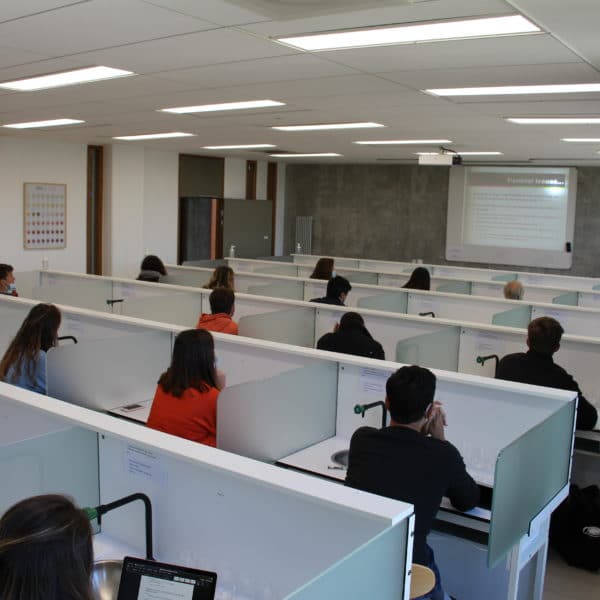Agreenium has compared 20 Masters in viticulture and enology from ten different countries based on three criteria: teaching and positioning, fees, and foreign student integration. How did BSA rank among these courses?
Agreenium’s benchmark study of Master’s courses
1st criterion: the global positioning of the Masters in viticulture and enology
2nd criterion: tuition fees with significant differences
3rd criterion: international student integration services
Agreenium’s benchmark study of Master’s courses
Where in the world should you do your your Master’s in viticulture and enology? Students looking for a university internationally are spoilt for choice. It’s hard to know where to start!
Agreenium a training and research alliance for agriculture, food, the environment and global health, has conducted a benchmark study comparing 20 20 international Masters programs in viticulture and enology taught in English in 10 countries:
- Germany
- Spain
- Italy
- China
- New Zealand
- Australia
- United States
- Portugal
- South Africa
- Israel
These courses were analysed based on three main criteria:
- Positioning
- Cost
- International student integration services
1st criterion: the global positioning of the Masters in viticulture and enology
Certain courses offered by prestigious universities claim to have a world-class reputation. These include American universities, Sonoma State University, the University of California Davis, California State University, Fresno, and the University of Adelaide in Australia.
In light of the changing landscape of the wine sector, others pride themselves on innovative teaching, like Spanish universities offering programs in wine tourism. Wein Campus Neustadt in Germany and Università Cattolica Del Sacro Cuore in Italy, on the other hand, have focused their Masters on sustainable viticulture and adaptation to climate change.
Both Shanghai Jiao Tong University in China and BSA (Bordeaux Sciences Agro) offer dual expertise. The Master’s degree from BSA allows students to gain technical and managerial skills, but also theoretical knowledge paired with in-depth practical application in the field and numerous tastings. Students also perform a comprehensive audit, the only one of its kind in the world, in which they act as consultants for a wine estate for three months.
The quality of teaching is also linked to the universities’ research programs. BSA certainly stands out in this area since all of its professors are also researchers
2nd criterion: tuition fees with significant differences
Tuition at American and Australian universities costs twice as much as at European universities. The costs range between €2,200 for a Master’s in Enology at the University of Valencia in Spain and an average of €50,000 for the American and Australian programs. Students wishing to major in Viticulture and Enology at Cornell University a private university in Ithaca, New York, must pay tuition of over €200,000 for the four-year program.
The Master of Science in Vineyard & Winery Management from BSA offers good value for money, at €20,000 for the two-year program, with all the study trips included (airfare, accommodation).
Few universities offer scholarships to fund these programs. Those that do offer merit scholarships for the brightest students.
3rd criterion: international student integration services
A large majority of programs present their Master’s degree to international students on an English website. Half of the programs offer a practical guide, similar to the one provided by BSA’s International Relations Department.
Only 30% of the universities offer services facilitating the integration of international students, including assistance with administrative procedures, integration assistance, and housing assistance.
Certain schools, especially in the United States, offer a mentoring program and job and internship services. Others provide online training materials or tutorials.
BSA has established an International Relations Department entirely devoted to facilitating integration for foreign students. At BSA, specific housing is reserved for foreign students. A student mentoring program also facilitates integration. French classes are offered free of charge. The students’ health care costs are also covered.
In addition to an ideal location at the heart of a historic wine region, BSA offers numerous advantageous for foreign students.
See the program for the Master of Science in Vineyard & Winery Management from BSA
